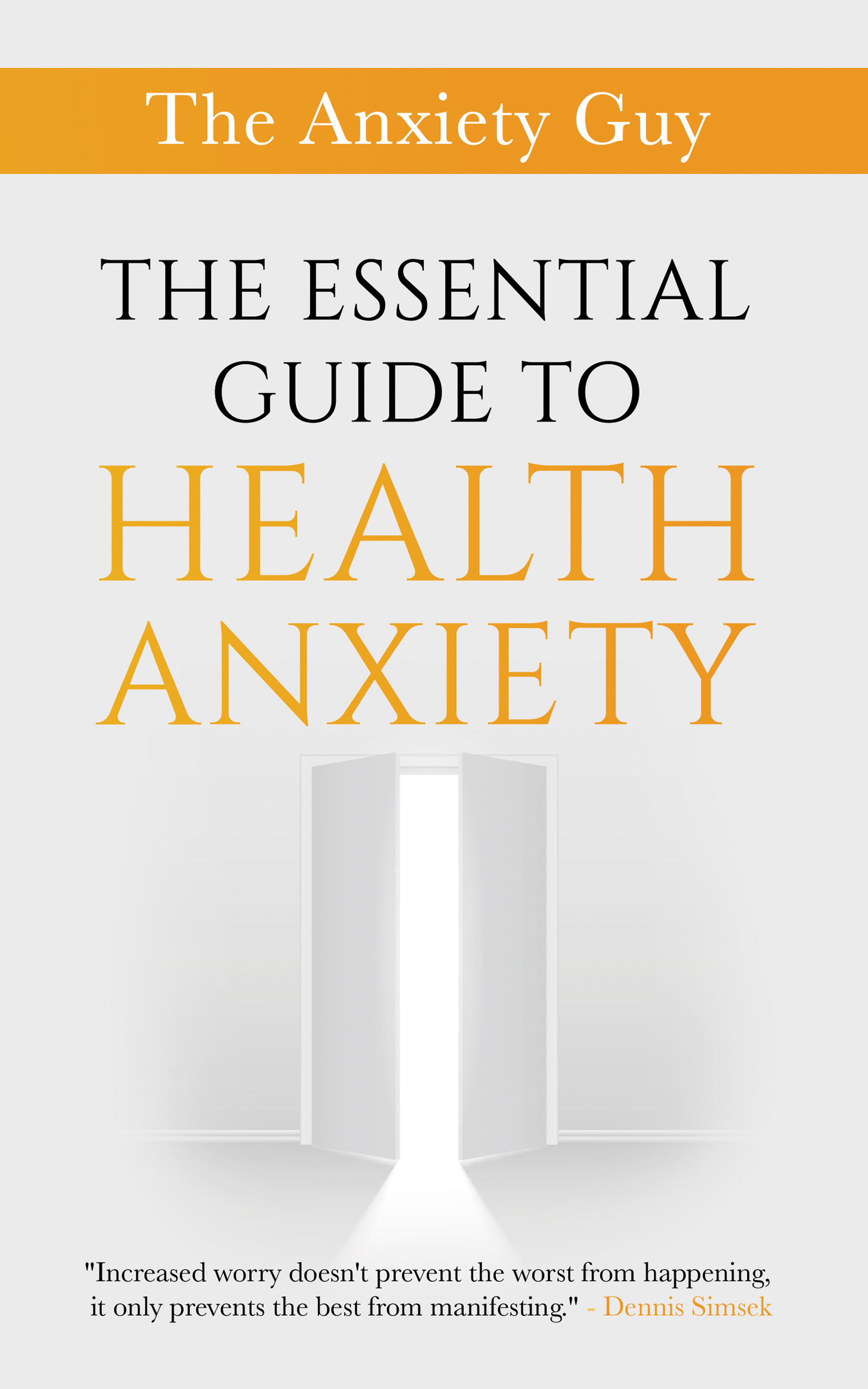Overview
A dissociative state known as depersonalization disorder (DPD) makes patients experience detachment from their internal states as well as external environment and personal experiences. People with this condition commonly ask whether the symptoms of depersonalization disorder can be treated. This piece studies depersonalization disorder symptoms alongside causes and available treatments and its predicted long-term follow-up for people diagnosed with the condition.1
Symptoms and Causes
Symptoms of Depersonalization-Derealization Disorder
People who have depersonalization-derealization disorder commonly face difficulties describing their symptoms to others because words fail to communicate effectively. Some people express their symptoms properly yet their descriptions fail to receive understanding from others. The main characteristic of the disorder entails a continuous sensation of feeling isolated from personal identity and external reality.
Common Symptoms:
- Depersonalization (Feeling Detached from Yourself)
- Such feelings create a state of disconnection with yourself through mental separation from thoughts or emotions or your physical self.2
- The development of such feelings leads to psychological separation between yourself and your psychological state and bodily condition.3
- You experience an abnormal sensation that your body, limbs or voice feel different from your usual self
- A mechanical sensation develops due to losing control over your life journey4
- Derealization (Feeling Detached from Your Environment)
- Your surrounding environment seems unrecognizable and distant with a distorted appearance5
- Various objects and individuals will appear flat and ametabolic along with foggy and two-dimensional
- A feeling that time behaves abnormally regarding its speed or seems either unusually rapid or slow6
- The experience of living like your existence belongs to a world of fantasies
- Emotional and Cognitive Effects
- Someone experiencing the condition appears without emotional responses because their feelings remain either dulled or non-existent7
- A person’s self-awareness together with obsessive symptom preoccupation can result in emotional distress.
- People with depression tend to engage in continuous obsessive thinking about their symptoms as well as past experiences and existential topics.
- Anxiety or depression, often triggered by the fear that something is permanently wrong
These physical sensations cause extreme distress which makes people doubt their sanity while fearing complete loss of their existence. When someone spends too much time thinking about these feelings they intensify thereby starting a continuous anxious cycle which worsens the happening of detachment.
Taking professional help combined with awareness that these distressing symptoms are treatable forms the basis for successful recovery.
What Causes Depersonalization-Derealization Disorder?
Doctors have not yet identified the direct source behind depersonalization-derealization disorder yet researchers link it to situations of severe stress and emotional trauma and intense psychological distress. The brain develops depersonalization-derealization disorder to create an emotional disconnect from distressing events through protective mechanisms.
Some people will never justify the idea that their traumas could cause depersonalization disorder. The deeper truth to that is possibly a fear of looking directly at the truth, and cognitive amnesia where the person simply forgets (here’s why).
Common Triggers and Risk Factors:
- Trauma and Stress
- Physical, emotional, or sexual abuse3
- Witnessing or experiencing domestic violence8
- Surviving accidents, natural disasters, or life-threatening situations
- The sudden death of a loved one
- Severe neglect or an unstable childhood environment
- Mental Health Conditions
- Chronic anxiety, panic disorder, or post-traumatic stress disorder (PTSD)
- Depression or mood disorders
- Obsessive-compulsive tendencies, particularly related to existential thoughts or fears
- Neurological and Biological Factors
- Dysregulation of stress-related neurotransmitters like serotonin and dopamine
- Overactivity in the brain’s fight-or-flight response, leading to emotional detachment
- Possible genetic predisposition, especially in families with a history of dissociative disorders
- Substance Use and Medication Effects
- Recreational drugs such as cannabis, hallucinogens, or stimulants can trigger dissociative episodes
- Certain medications may cause depersonalization as a side effect
The effects of severe stress on depersonalization are temporary before its development into depersonalization-derealization disorder following the initial stressful event’s duration. Understanding core causes enables people to seek appropriate treatments together with self-help strategies.
Diagnosis and Tests
How Is Depersonalization Disorder Diagnosed?
The diagnosis of depersonalization disorder depends on mental health professionals who need to conduct thorough evaluations. Expert identification of depersonalization disorder depends on multiple evaluations since the condition lacks a solitary diagnostic instrument.
- Psychological Evaluation – The clinician evaluates patient symptoms together with medical records and identifies potential contributing factors which might take the form of trauma or anxiety conditions.9
- Differential Diagnosis – Medical investigators need to complete psychiatric exams and neurological exams to exclude conditions like schizophrenia as well as PTSD and epilepsy and anxiety and depression when evaluating patients with DPD symptoms.10
- Self-Reports – Patients provide detailed descriptions about their encounters which include mind-body detachment symptoms and emotional detachment symptoms along with dissociative episodes. The Cambridge Depersonalization Scale functions as a methodology to assess symptoms’ intensity through questionnaire evaluation.11
- Physical Examination – A physical check-up occurs to eliminate medical explanations like neurological disorders or substance-caused dissociation although DPD remains a psychological disorder.10
- Duration and Frequency – The disorder is typically diagnosed if symptoms are persistent, recurring, and cause significant distress or impairment in daily life.12
Early diagnosis is crucial for effective treatment. If symptoms persist or interfere with daily functioning, seeking professional help can greatly improve the chances of recovery.
Management and Treatment
Knowing which treatment to use at what time can only arise as you become open to new beliefs and habbits. The more stubborn you are towards change the less likely it will be that you will trust in your intuition. When intellect and intuition are in harmony there is balance within.
How Is Depersonalization Disorder Treated?
Many professionals combine different approaches to treat depersonalization-derealization disorder without establishing definitive treatment solutions. Medical treatment procurement includes critical analysis of patient history combined with symptom intensity evaluation together with individual patient-focused concerns.
Medical practitioners use these evaluation results to design treatment which includes psychotherapy with medicine and possibly other therapeutic approaches. Cognitive behavioral therapy (CBT)13 frequently provides treatment to patients through helping them identify and transform anxiety-provoking thoughts which drive detachment feelings. The mental health treatment known as eye movement desensitization and reprocessing (EMDR)14 which first aimed for trauma relief has potential applications in controlling distressful dissociative events.
Certain treatments provide healthcare professionals with the option to prescribe antidepressants alongside anti-anxiety drugs which serve to stabilize mood and reduce medical symptoms. The recovery of depersonalization-derealization disorder highly depends on lifestyle modifications which include learning stress management and mindfulness skills plus exercising regularly while maintaining structure. The combination of proper treatments leads to substantial improvements for people who have persistent depersonalization-derealization disorder.
This brings us to the next point on this journey. That is, the biggest component that maintains this numbing, freezing, foggy, bewildering, and detached state. And that would be directly connected to your conscious mind. You see, the conscious mind is a vital component to healing anxiety for good, and yet it tends to work against us many times.
Medications for Depersonalization Disorder
Research has shown talk therapy provides the most effective treatment for depersonalization-derealization disorder but healthcare providers may add medications into the complete plan for treatment. Before prescribing medications for symptom management a mental healthcare provider might select from different pharmaceutical options or use them together.15
- Selective Serotonin Reuptake Inhibitors (SSRIs) – SSRIs serve as antidepressant drugs to minimize distress during depersonalization episodes among patients.
- Anti-Anxiety Medications – Doctors use brief benzodiazepines or anti-anxiety medications as short-term treatments for severe dissociative symptoms but these drugs should be avoided for long periods because they lead to dependency issues.
- Mood-Stabilizing Medications – The physicians prescribe lamotrigine or lithium drugs to regulate mood that minimizes emotional feelings of numbness.
- Antipsychotic Medications – Doctors may prescribe low doses of antipsychotic drugs to treat intrusive thoughts along with dissociative symptoms particularly when these symptoms relate to other mental health disorders.
Therapy for Depersonalization Disorder
Psychotherapy is one of the most effective treatments for DPD. Common approaches include:
- Cognitive Behavioral Therapy (CBT) – Helps patients challenge and change negative thought patterns.16
- Dialectical Behavioral Therapy (DBT) – Focuses on mindfulness and emotional regulation.
- Eye Movement Desensitization and Reprocessing (EMDR) – Useful for trauma-related DPD.
- Teletherapy – Online therapy options are now widely available for those seeking professional help remotely.17
How to Treat Depersonalization Disorder Naturally
People who want natural methods to handle depersonalization disorder need to concentrate on practices which reconnect their mind to their body and minimize their stress levels. Many people achieve depersonalization relief through regular lifestyle development combined with ground-based techniques although there exists no definitive method for treating this disorder.
Grounding Techniques to Stay Present
- Mindfulness Meditation – Practicing mindfulness can help you stay anchored in the present moment and reduce feelings of detachment.18
- Deep Breathing Exercises – Controlled breathing, like diaphragmatic breathing or the 4-7-8 method, can lower anxiety and stabilize emotions.19
- Progressive Muscle Relaxation (PMR) – Tensing and relaxing different muscle groups helps release stored tension and reconnect with bodily sensations.
- Sensory Engagement – Using smell, touch, taste, and sound can bring awareness back to reality. Try holding a cold object, smelling essential oils, or listening to calming music.
- Five Senses Exercise – Notice five things you can see, four things you can touch, three things you can hear, two things you can smell, and one thing you can taste to ground yourself in the moment.
Lifestyle Changes for Long-Term Relief
- Reducing Stress – Practicing yoga, tai chi, or journaling can help manage overwhelming emotions and prevent dissociation.
- Improving Sleep – Poor sleep can worsen depersonalization; establish a consistent bedtime, avoid screens before bed, and create a relaxing nighttime routine.
- Avoiding Stimulants – Caffeine, nicotine, and recreational drugs can overstimulate the nervous system and increase dissociation episodes.
- Regular Exercise – Activities like walking, swimming, or strength training release endorphins, improve mood, and reduce anxiety symptoms.
People experience natural depersonalization disorder recovery after properly addressing the issue through appropriate methods despite the condition initially appearing absolute. Continuous dedication to daily habits allows people to restore their daily control together with their present sense of awareness.
Outlook / Prognosis
How Long Does Depersonalization Disorder Last?
The length that a person remains in a depressed state presents wide variation. The duration of DPD ranges from weeks to multiple months up to multiple years for different individuals. Multiple elements determine the recovery course which takes several factors under consideration:20
- Severity of symptoms – Mild cases often resolve faster, while chronic cases may take longer.
- Effectiveness of treatment – Therapy, medication, and self-help strategies can speed up recovery.
- Commitment to therapy and lifestyle changes – Actively engaging in treatment and adopting grounding techniques can improve outcomes.
- Underlying mental health conditions – Anxiety, depression, or PTSD can prolong symptoms if left untreated.
- Stress levels and life circumstances – Ongoing stress can make recovery more challenging, while a supportive environment promotes healing.
Several people want to know if depersonalization will disappear. Treatment combined with appropriate coping strategies leads to substantial improvement of the condition for most patients over time. With perseverance alongside appropriate medical attention it is possible to achieve a state of normal health after persistent treatment.
Frequently Asked Questions
Can Depersonalization Be Cured or is it Permanent?
Yes and No. There is No cure for Depersonalization Disorder, But Treatment’s lessen symptoms, and can lead to Permanent Remission of DPD. Each person faces a different time span with depersonalization disorder symptoms which in most instances does not become permanent. Different people have either brief or extended durations of experiencing depersonalization symptoms. Proper treatment consisting of therapy and grounding techniques and lifestyle adjustments enables individuals to recover from depersonalization disorder.21
Untreated chronic depersonalization continues for extended lengths and frequently intensifies because of stress-related factors and anxiety-induced behaviors and coping strategies that avoidance creates. When individuals seek help from professionals together with addressing their emotional issues through proper recovery techniques they can enhance their symptoms while regaining connection to reality.
Does Depersonalization Disorder Go Away on Its Own?
Without treatment, depersonalization-derealization disorder may persist for years. While it can sometimes improve naturally. This is more common with more Mild short-term depersonalization disorder, this has a chance to heal by itself particularly when people experience brief periods of stress fatigue or anxiety. The brain returns to its normal state and the separation feelings start to disappear when the source of stress exits.
Treatment is needed to resolve persistent depersonalization disorder since it typically requires medical intervention to resolve. Medical intervention becomes necessary once symptoms persist throughout weeks along with months or when they start affecting regular activities. Treatment through therapy combined with self-help strategies and identifying and resolving anxiety along with trauma and excessive thoughts will substantially help recovery.
How Rare Is Depersonalization Disorder?
Superficially DPD seems less common than most individuals might guess. Research points to 2% as an approximate number of individuals who develop chronic depersonalization disorder during their lifetime.
Research indicates one out of two people develops depersonalization symptoms at some time during their existence exclusively from stress-related events and trauma conditions while substance abuse and sleeplessness can also provoke such reactions. 7
The dissociative disorder DPD exists as a recognized form of dissociative disorder that affects people irrespective of cultural or demographic background. Enhanced awareness acts as a driving force to show individuals experiencing depersonalization experiences that they receive support among others and they can recover from this condition.
What Does Depersonalization Disorder Feel Like?
Because depersonalization disorder produces intensely personal symptoms people with this condition find it hard to express what they experience. However, common descriptions include:22
- Feeling disconnected from reality, as if observing life from the outside.
- A sensation of being in a dream or movie, where everything feels surreal or artificial.
- Loss of emotional connection, where people and experiences seem distant or hollow.
- Feeling detached from one’s own body, thoughts, or actions, as if operating on autopilot.
- A sense of being trapped inside one’s mind, unable to fully engage with the external world.
When faced with this experience most people feel panic as they worry about losing their grip on what is real. Such distress creates greater anxiety and fear that they have lost contact with reality. The experience of depersonalization brings overwhelming fear but this mental state remains harmless and indicates no signs of psychosis. Through supportive measures along with personal care people can generally recover their sense of identity and objective reality.
Final Thoughts
So, can depersonalization be cured? A complete remission from depersonalization is possible only through proper treatment approaches that combine therapy with medication and lifestyle modifications. The best option to achieve recovery from depersonalization disorder involves consulting experienced professionals.
To understand this version of trauma, the over thinking habit, and depersonalization disorder more deeply watch the video below. New insights will arise. You’ll be able to look at the present moment and connect this insight to your own experiences. I’m excited for you to take on this journey warrior, together we will become more than anxiety.
One more thing, after you watch the video below share a few comments in the comment section below. Express the people you haven’t forgiven from your past, the emotions you’ve been suppressing, and anything else that connects to your anxiety today.
Let’s get to it!
Join myself and over 200k Subscribers on my YouTube channel today – CLICK HERE
The Anxiety Guy Podcast is now available on Apple – CLICK HERE
Become a part of our incredible anxiety support group on Facebook today – CLICK HERE
References
- Depersonalization-derealization disorder – Symptoms and causes. (2024). Retrieved February 22, 2025, from Mayo Clinic website: https://www.mayoclinic.org/diseases-conditions/depersonalization-derealization-disorder/symptoms-causes/syc-20352911[↩]
- Depersonalization: Everything You Need to Know. (2023, July 10). Columbia University Irving Medical Center. https://www.cuimc.columbia.edu/news/depersonalization-everything-you-need-know [↩]
- Medford, N., Sierra, M., Baker, D., & David, A. S. (2005). Understanding and treating depersonalisation disorder. Advances in Psychiatric Treatment, 11(2), 92–100. https://doi.org/10.1192/apt.11.2.92 [↩][↩]
- Murphy, R. J. (2024). Functional Brain Alterations Associated with Depersonalization/Derealization Disorder. 1–24. https://doi.org/10.1007/978-3-031-32035-4_124-1[↩]
- Yang, J., Millman, L. S. M., David, A. S., & Hunter, E. C. M. (2022). The Prevalence of Depersonalization-Derealization Disorder: A Systematic Review. Journal of Trauma & Dissociation, 24(1), 8–41. https://doi.org/10.1080/15299732.2022.2079796[↩]
- Zheng, S., Zhang, F. X., Hubert, Zhang, H., Song, N., Song, M., & Jia, H. (2024). Unraveling the brain dynamics of Depersonalization-Derealization Disorder: a dynamic functional network connectivity analysis. BMC Psychiatry, 24(1). https://doi.org/10.1186/s12888-024-06096-1[↩]
- Yang, J., Merritt, L., David, A., & Hunter, E. (n.d.). The Prevalence of Depersonalization-Derealization Disorder: A Systematic Review Word count: 5,488 (including references). Retrieved February 22, 2025, from https://discovery.ucl.ac.uk/id/eprint/10135448/3/David_The%20prevalence%20of%20DDD_Final.pdf [↩][↩]
- Etay Shilony, & Grossman, F. K. (1993). Depersonalization as a defense mechanism in survivors of trauma. Journal of Traumatic Stress, 6(1), 119–128. https://doi.org/10.1007/bf02093366 [↩]
- Depersonalization-Derealization Disorder: Causes & Treatment. (2025). Medicoverhospitals.in. https://www.medicoverhospitals.in/diseases/depersonalization-derealization-disorder/ [↩]
- Hunter, E. C. M., Charlton, J., & David, A. S. (2017). Depersonalisation and derealisation: assessment and management. BMJ, j745–j745. https://doi.org/10.1136/bmj.j745 [↩][↩]
- Depersonalization / Derealization Disorder. (2025). Psychology Today. https://www.psychologytoday.com/us/conditions/depersonalizationderealization-disorder[↩]
- team, N. editorial. (2024, September 15). Depersonalization in Psychology: Causes, Symptoms, and Treatment Options. NeuroLaunch.com. https://neurolaunch.com/depersonalization-definition-psychology/[↩]
- McRedmond, G., Gafoor, R., Ring, L., Morant, N., Perkins, J., Dalrymple, N., Dumitru, A., David, A. S., Lewis, G., & Elaine. (2024). Cognitive Behaviour Therapy for Depersonalisation Derealisation Disorder (CBT-f-DDD): Study protocol for a randomised controlled feasibility trial. PLoS ONE, 19(8), e0307191–e0307191. https://doi.org/10.1371/journal.pone.0307191 [↩]
- Swamy G. (2022, December 6). Therapy and Treatment Options for Depersonalization Derealization Disorder. Acoachcalledlife.com. https://acoachcalledlife.com/treatment-cure-therapy-dpdr/[↩]
- Somer, E., Amos-Williams, T., & Stein, D. J. (2013). Evidence-based treatment for Depersonalisation-derealisation Disorder (DPRD). BMC Psychology, 1(1). https://doi.org/10.1186/2050-7283-1-20 [↩]
- noble.dana. (2023, April 18). How to cope with depersonalization and derealization – Mayo Clinic Press. Mayo Clinic Press. https://mcpress.mayoclinic.org[↩]
- Treatment for Depersonalization-Derealization Disorder | The Recovery Village Indianapolis. (2025, January 16). The Recovery Village Indianapolis Drug & Alcohol Rehab. https://www.recoveryindianapolis.com/mental-health/depersonalization-derealization-disorder-treatment/[↩]
- Clinic, C. (2022, May 5). How To Cope With Depersonalization. Cleveland Clinic. https://health.clevelandclinic.org/how-to-cope-with-depersonalization[↩]
- Fraga, J. (2018, October 3). 10 Ways to Relieve Depersonalization. Psych Central. https://psychcentral.com/lib/10-simple-ways-to-relieve-depersonalization[↩]
- Spiegel, D. (2023, May 3). Depersonalization/Derealization Disorder. MSD Manual Professional Edition; MSD Manuals. https://www.msdmanuals.com/professional/psychiatric-disorders/dissociative-disorders/depersonalization-derealization-disorder [↩]
- Depersonalization-derealization disorder – Diagnosis and treatment – Mayo Clinic. (2024). Mayoclinic.org; https://www.mayoclinic.org[↩]
- Tietsort, E. (2023). Depersonalization/Derealization Disorder: Symptomatology in Drug Induced Psychopathology. https://doi.org/10.15760/honors.1426 [↩]




















sign me up for your newsletter please
Yes, please sign up at the main page bottom right sign up. You will receive the digital version of my first book, please enjoy.
I wouldn’t be surprised if an overwhelming majority of the worlds population has depersonalization disorder. I’m wondering if this depersonalization disorder is more common than we think and is there another common name for this like, being desensitized to life?
This level of sensitivity and overwhelm is more common than we think, I believe. In such a fast paced environment and having been surrounded by such pressures growing up (for most of us) it’s only natural that the nervous system gets to a point of feeling tired but wired in adult life.
I have had depersonilization since I was young. I asked doctors about this; but they just prescribed pills. I was searching the web a long time and finally i found someone who knows about this condition. It felt so good to listen and get some ideas on what I should do to help myself. I feel I have hope now.
Thank you very much.
Love to hear that you’re on the right path towards healing your depersonalization disorder Lorraine, much love.